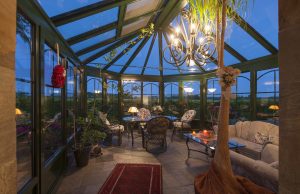
The demand for new decking material, the maintenance issues and environmental concerns associated with many decking materials, such as wood decking, have increased the use of composite decking in the last ten years.
Composite decks have many benefits, but their moisture resistance and low maintenance have made them very appealing to the construction industry. They are also eco-friendly, aesthetically pleasing, family-friendly and sustainable.
The construction industry is encouraging the use of composite decking because it is a durable and easy-to-maintain decking option. Composite deck manufacturers have successfully solved decking problems associated with rapid deterioration, rot, splinter, pest attack or infection, moisture issues and high maintenance.
What is composite decking?
Composite decking comprises two primary products: recycled plastic and wood. This entails that composite decking offers the best features of each material, which include strength, lightweight and moisture resistance.
What are the benefits of utilising composite decking in building projects?
The composite decking industry is noted to have enormous growth potential. This is not hard to see.
Composite decking emerged in the late 1980s. Since then, the demand for the product has reached its peak due to the DIY boom. Also, society is becoming more environmentally conscious and has led to a soar in demand for composite decking products. Alternatively, other homeowners are drawn to the strength, low maintenance, extreme durability and moisture resistance of composite decking materials.
The weatherproof feature of wooden composites makes it suitable for a wide variety of uses. For instance, composite decking boards can be repurposed for garden beds, because it has a high resistance to rot and damp, due to its plastic makeup.
Composite decking is also cost-saving as it drastically reduces the need for frequent repairs, replacements and staining.
Let’s explore in full detail the awesome benefits of composite decking:
Warping, splintering, weathering and fading resistance
While traditional wood decks are prone to splintering, discolouration and rapid deterioration when exposed to weather elements, composite decking boards are not. Whether during rainfall or sunshine, composite decks will remain radiantly beautiful and highly functional.
Easy to Maintain
Traditional wood decks are known for their high maintenance. Their owners will have to maintain them at least once every three years. They have to be replaced within 12 to 16 years. This upkeep process can be time-consuming and very expensive. Wood deck owners will also have to factor in the cost of staining and power washing. Wood decking cannot be equated to composite decking in terms of performance and long lastingness.
Composite decking does not need sealing, staining or sanding to maintain its lustre and beautiful shine. They are known to be hassle-free and cost-saving because owners will only require light washing with a mild cleanser to remove grime or dirt.
Long term value
Wood decks have a lower cost of purchase than composite decks. But when high maintenance costs are taken into account, owners of wood decks will end up spending more. Composite decking is cost-saving because owners will save enough expenses to cover the purchase cost. This demonstrates the long-term cost-saving features of composite decking.
Stylishly designed without sacrificing performance.
Traditional wood decking comes in various hardness ratings, and the species of wood decking influences the way it reacts to its surroundings. This denotes some compromise on the appearance of the material to make up for how hard, functional or viable the decking material will be. This is different in the case of composite decking. With a composite deck board, you will be able to express your aesthetic taste or style without sacrificing functionality or performance.
Mould and Mildew – Resistance
A major advantage of composite decking for many homeowners is that it is less susceptible to mildew and moss. Wood decking boards are vulnerable to the incursion of mildew and mould. Capped composite deck boards provide superior moisture resistance.
Environmentally friendly
Eco-friendliness is at the heart of the composite deck manufacturing industry. Composite decks are primarily manufactured with over 75% recycled plastic and wood materials. No trees are cut down in the process of manufacturing eco-friendly composite decking boards. This is an effective way of tackling deforestation and logging, which has continued to haunt the construction industry at large.













